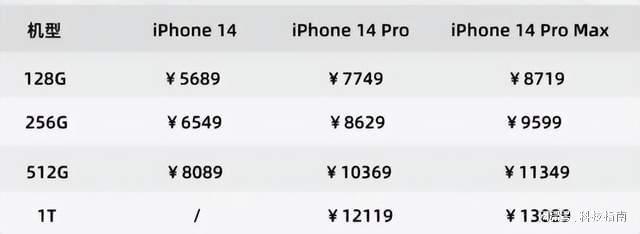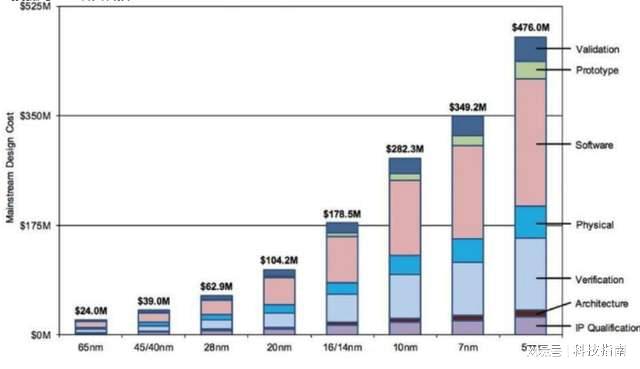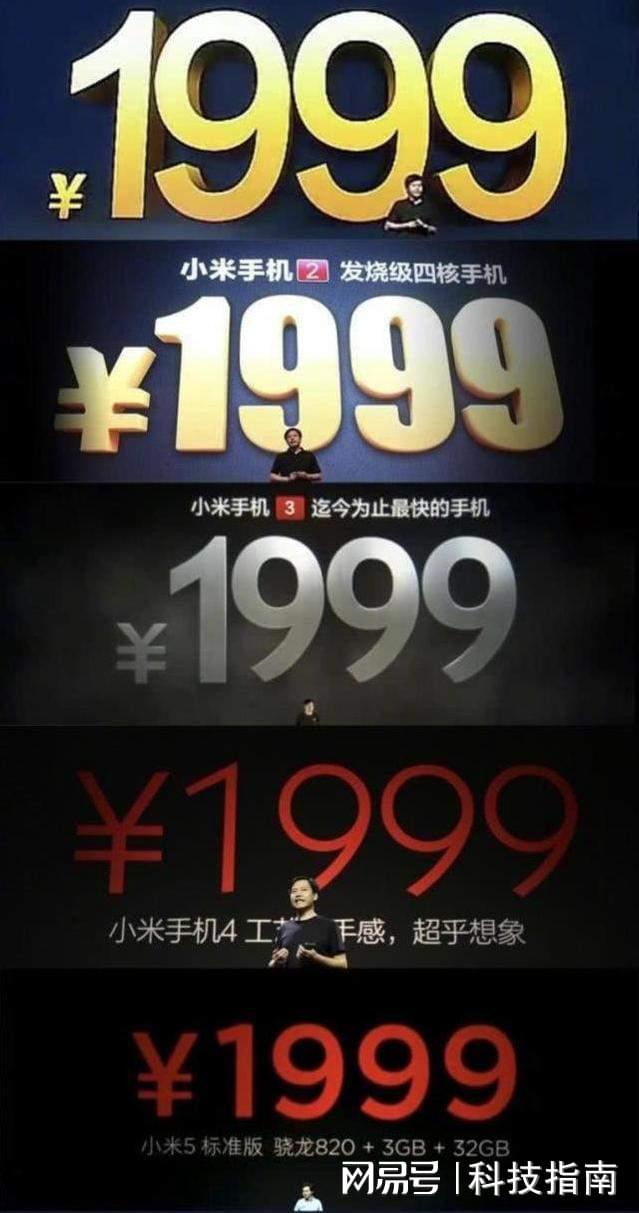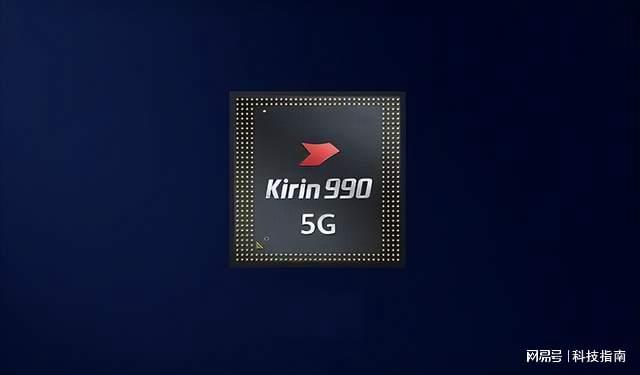The Snapdragon 8Gen2 is more expensive than the Apple A16 on the surface, while the more Android phones are purchased, the more expensive they become. Behind the scenes control is the real thing
The latest foreign media reports have revealed the price of Qualcomm Snapdragon 8Gen2 flagship chips, which has attracted the attention of consumers. According to relevant analysts, the flagship chips in the current Android smartphone market are priced at $160 per chip (approximately 1137 yuan)
The latest foreign media reports have revealed the price of Qualcomm Snapdragon 8Gen2 flagship chips, which has attracted the attention of consumers. According to relevant analysts, the flagship chips in the current Android smartphone market are priced at $160 per chip (approximately 1137 yuan). This news has also caused considerable controversy compared to previous discussions about the cost of Apple's A16 biomimetic chip. According to reports, the cost of each A16 chip is $110 (approximately RMB 782), although it has doubled in price compared to the previous generation A15 chip, it is still $50 cheaper (approximately RMB 355) than the Qualcomm Snapdragon 8Gen2 chip.

With RedmiK60Pro, vivo QOO11, OPPO One Plus 11, Meizu 20, Xiaomi 13 Series, OPPOFindX6Pro, Samsung Galaxy S23 Series, vivo X90Pro+, etc. equipped with Snapdragon 8Gen2 chipsSmartphones have been launched one after another, and many users have already experienced it firsthand. The feeling is that the performance improvement is not particularly significant, butThe terminal price of mobile phones is still not low.

On the contrary, the iPhone 14Pro series equipped with A16 chips actually has a lower price than the previous generation Apple 13Pro series. Although A16 chips are more expensive than the previous generation A15, the overall price of iPhones now is significantly reduced.Consumers may have many misunderstandings about the reality that Android smartphones are becoming increasingly expensive:
1. The price reduction strategy for new iPhone products is nothing more than to increase sales and occupy more market share. Don't forget that the Apple ecosystem is also quite profitable, and the surrounding accessories and smart products have increased the potential for profitability in various areas. However, don't expect iPhones to sell cheaper than Android. If they are indeed cheaper than Android, the behind the scenes capital operators in Meili may not agree. To put it bluntly, the Android camp represented by Apple and Qualcomm has both competition and balance. I will analyze point 6 for everyone.

2. On the Android smartphone side, domestic brands are also constantly competing for the share of high-end smartphones, as profit margins are higher. Therefore, pricing is bound to be aligned with Apple's iPhone, and regardless of sales volume, pricing cannot be low.

3. The core components mentioned earlier, such as the Qualcomm Snapdragon 8Gen2 chip and imaging CMOS without core technology, can only be purchased at a high price, invisibly increasing the cost of manufacturing mobile phones.
4. Research and development expenses, especially some cooperation expenses and patent licensing fees, do not have an advantage for domestic Android phones. Don't look at Leica, Hasu certification looks high-end and atmospheric, and also requires a certain fee to pay. Patents are a lot of hidden pain for domestic phones.
5. Like TSMC's continuous increase in chip processing costs, although there is a high R&D cost brought about by the process improvement here, although the increase from 7nm to 5nm may not seem significant, the R&D cost increase is not of the same magnitude. In addition, as the process increases, the yield rate will also be affected, and the invisible cost pressure will ultimately be passed on to consumers.

Due to TSMC's absolute monopoly position, it is inevitable to insist on an increase in OEM prices. Starting from January 2024, advanced manufacturing processes will increase by another 3% -6%. In fact, not only for Apple and Qualcomm, but also for other chip processing in some mobile phones, prices will inevitably increase.
6. The hidden reason is that although the exchange frequency of smart phones has decreased, they are still the largest consumer electronics shipped in the world. Everyone knows who holds the core technology. Where did the high profits earned by Apple's iPhone ultimately go? Where does the profit earned by Qualcomm chips ultimately go? Where has the profit earned by Google's Android system gone?
If you touch someone else's cake, you will inevitably be suppressed. In the current environment, many products, including Huawei, have their profit margins taken away by others.

At first, the standard version of the flagship phone could be purchased for 1999 yuan, but now it's difficult to do without around 5000 yuan.
In fact, let alone the increase in product costs, think about the current situation of the home appliance industry and televisions. Nowadays, smart televisions with large screens can be purchased for a thousand yuan. In the digital industry, the product itself should have improved performance and experience through iterative upgrades, but the price remains unchanged or reduced, as the product has become more mature.

The reason why smartphone prices remain high seems to be fierce competition in the smartphone terminal market. In fact, the real earners of high profits are capital giants who possess core technologies and are in a monopolistic position. When is the competition for core technology when the price of mobile phones will truly be lowered! However, the difficulty can be imagined. The behind the scenes capital tycoons earn high profits, will maintain technological research and development, protect their mature and stable supply chain, and want to break through can be imagined. (They start from basic disciplines, think about the thousands of accumulated technology in EUV lithography machines, and then think about the surrounding Canon, Sony, Samsung technology, and Meili country holding a whip...)

Huawei originally wanted to venture into the world, but the reality is so cruel.Looking at Xiaomi, Oppo, Vivo, and others who have all been involved in the chip industry, why do they dare to make a big fuss? Can only make a submissive statement - small chips. How dare you touch someone else's cheese? A "big fight" makes you realize reality. The reality is that Apple, Qualcomm, even ASML in the Netherlands and TSMC in Taiwan, China are all migrant workers in beautiful countries,But Apple and Qualcomm are senior workers,To put it bluntly, domestic mobile phone manufacturers are still low-end manufacturing outsourcing workers,,

,,,,,
Tag: the more is expensive The Snapdragon 8Gen2 than Apple
Disclaimer: The content of this article is sourced from the internet. The copyright of the text, images, and other materials belongs to the original author. The platform reprints the materials for the purpose of conveying more information. The content of the article is for reference and learning only, and should not be used for commercial purposes. If it infringes on your legitimate rights and interests, please contact us promptly and we will handle it as soon as possible! We respect copyright and are committed to protecting it. Thank you for sharing.


